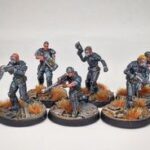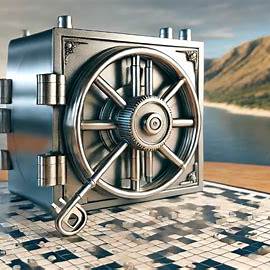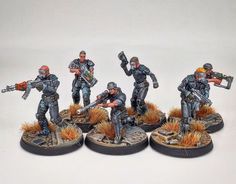he New York Times (NYT) crossword puzzle is one of the most iconic and intellectually stimulating word games available today. Known for its clever wordplay, layered meanings, and cultural references, the NYT crossword has challenged solvers for generations. Among the many intriguing clues that appear, one that frequently causes puzzlement is “Vault opener?” This seemingly simple phrase has tripped up even seasoned solvers due to its ambiguity and potential for multiple interpretations.
In this article, we will explore the depths of this cryptic clue, decode its various meanings, and offer strategies for solving similar puzzles. We’ll also dive into the historical context of such clues, examine how wordplay functions in crosswords, and answer frequently asked questions to help you become a more confident and capable solver.
What Does “Vault Opener?” Mean?
At first glance, the phrase “Vault opener?” might conjure up images of a key, a combination, or a safecracker—tools and people who open secure storage spaces. While this interpretation is not incorrect, it is not the typical answer you’d find in a New York Times crossword puzzle. In fact, the clue is a classic example of NYT wordplay, where the true meaning lies beneath the surface.
The word “vault” can also refer to a gymnastic event—specifically, pole vaulting. In this context, the word “opener” refers to the item or tool that initiates or enables the vault. Thus, the correct answer to the clue “Vault opener?” is often “pole.” This solution relies on recognizing the dual meaning of the word “vault,” and the question mark at the end of the clue is a signal to solvers that the clue involves a pun or non-literal interpretation.
The Role of Wordplay in Crossword Clues
The New York Times crossword is known for using clever wordplay to obscure the obvious and challenge solvers to think differently. In crossword lingo, clues that include a question mark are generally indicative of a pun, joke, or wordplay. These clues are meant to be tricky and force solvers to consider alternate meanings or homophones.
With the “Vault opener?” clue, the setter is toying with the solver’s assumptions. Most people will initially consider the banking or security-related meaning of “vault.” However, when the answer doesn’t match these assumptions, it becomes necessary to explore alternate meanings. This is where understanding how to approach wordplay becomes essential.
Historical Use of Vault Clues in Crosswords
Clues involving the word “vault” have appeared in various forms throughout the history of crossword puzzles. They can refer to architectural vaults (such as those found in cathedrals), banking vaults, gymnastic vaults, or even poetic uses of the word. The versatility of the word makes it a favorite for constructors aiming to incorporate ambiguity and challenge into their puzzles.
Over time, solvers become more adept at recognizing these patterns. For instance, if a clue uses a word with multiple definitions and includes a question mark, experienced solvers will immediately begin considering non-literal meanings. This is part of what makes solving crosswords both fun and mentally stimulating.
Strategies for Solving Tricky Clues Like “Vault Opener?”
1. Understand the Role of Punctuation
One of the most important tools in a crossword constructor’s arsenal is punctuation. In this case, the question mark in “Vault opener?” is a crucial clue. It tells you that the clue is not to be taken literally and that some form of wordplay is involved. Anytime you see a question mark, pause and consider alternative meanings.
2. Think About Multiple Meanings
Many words in the English language have multiple definitions. When solving a clue, take a moment to brainstorm all the possible meanings of a word. With “vault,” you might think of:
- A secure room for valuables
- A gymnastic event
- An arched ceiling
- A sudden leap
This mental flexibility is key to cracking the toughest crossword clues.
3. Use Cross-Referencing
Sometimes the best way to solve a difficult clue is to solve the clues around it. As you fill in the intersecting words, you’ll gain access to letters that can narrow down the possibilities for the word in question. Even one or two correct letters can dramatically shift your understanding of a clue.
4. Look for Common Themes and Patterns
If you’re solving a themed crossword puzzle, understanding the theme can provide valuable insight into each clue. Clues and answers will often adhere to a central idea, which can help you infer the correct meaning.
5. Practice Makes Perfect
Solving NYT crosswords regularly is one of the best ways to get better at identifying wordplay and tricky clues. As you encounter more puzzles, you’ll begin to recognize the styles of different constructors and the types of puns they favor.
Common Misconceptions
A clue like “Vault opener?” is fertile ground for misinterpretation. Here are a few common mistakes solvers make:
- Taking the clue too literally: Assuming it refers to a key, lockpick, or combination code.
- Ignoring the question mark: Overlooking the clue’s pun signal can steer solvers in the wrong direction.
- Overthinking the answer: Sometimes the simplest answer—like “pole”—is correct, even if it seems too obvious in retrospect.
The Joy of the “Aha!” Moment
Part of what makes solving crosswords so satisfying is the moment when the correct answer suddenly clicks into place. Clues like “Vault opener?” are designed to create those moments. Once you see the dual meaning and realize how elegantly the clue is constructed, it’s hard not to appreciate the craft behind it.
Frequently Asked Questions (FAQs)
Q: What does the question mark in “Vault opener?” mean? A: In crossword puzzles, a question mark typically indicates that the clue involves wordplay, a pun, or a non-literal interpretation. It’s a cue to think creatively.
Q: What is the most common answer to the clue “Vault opener?” A: The most common answer is “pole,” referring to a pole used in pole vaulting, a gymnastic event.
Q: Are there other possible answers to “Vault opener?” A: Yes. Depending on the theme and context of the crossword, other answers like “key” or “leap” could also fit. However, “pole” is the most widely accepted in NYT crosswords.
Q: How can I get better at solving NYT crosswords? A: Practice regularly, pay attention to wordplay, learn to spot puns and alternate meanings, and review past puzzles. Many solvers also find it helpful to join crossword communities or follow solving blogs.
Q: Are all question mark clues puns? A: Not always, but they typically involve some form of misdirection, wordplay, or figurative language. It’s best to approach them with an open and creative mindset.
Conclusion
The NYT crossword clue “Vault opener?” is a perfect example of the clever and challenging wordplay that defines the puzzle. By exploring the multiple meanings of words and learning to identify clues that require lateral thinking, solvers can unlock the joy of solving even the most cryptic entries. Whether you’re a novice or a seasoned crossword enthusiast, clues like these offer an engaging mental workout and a satisfying “aha!” moment once solved. So the next time you see a clue that seems deceptively simple, remember: the answer might just be hiding in plain sight.










